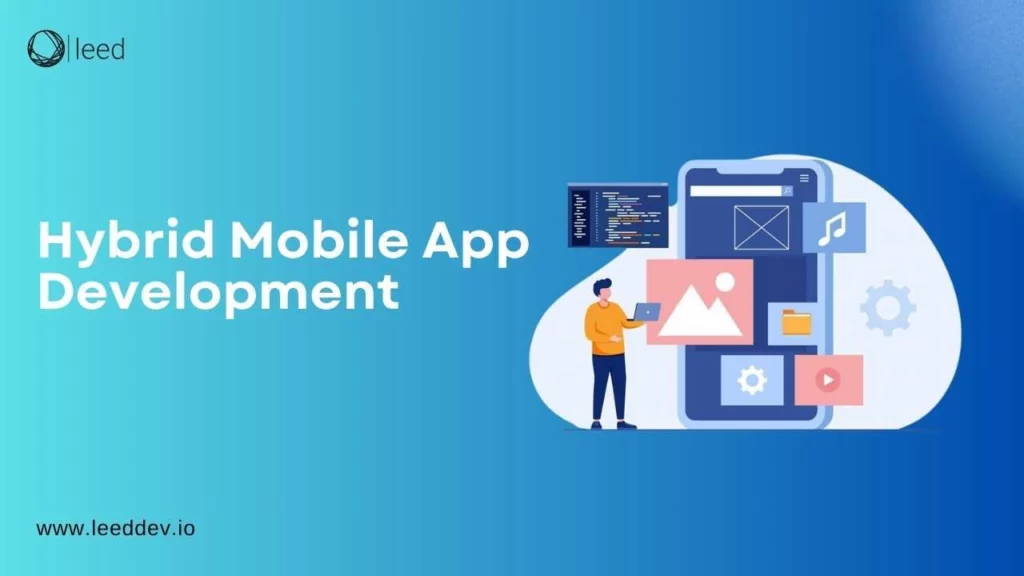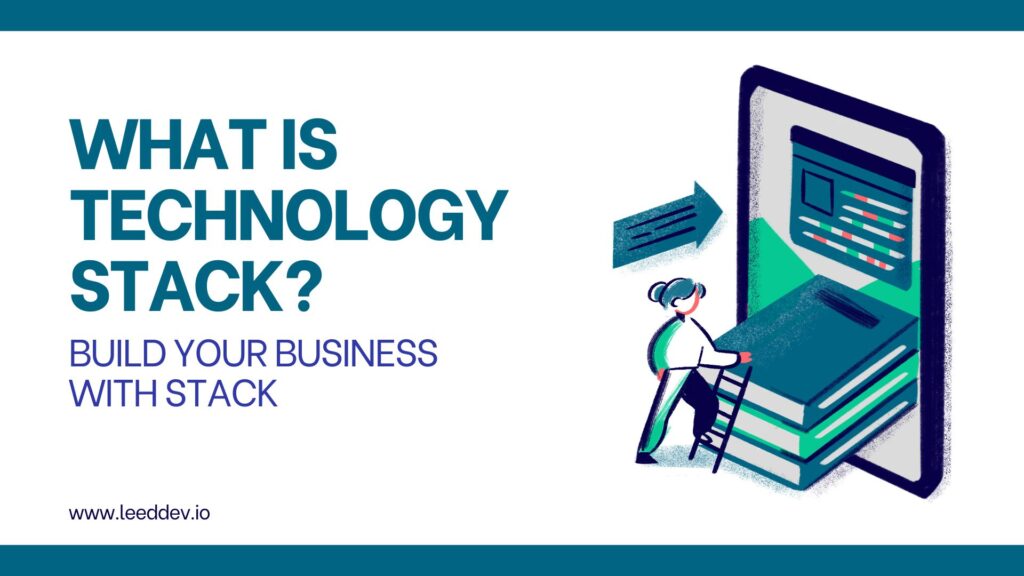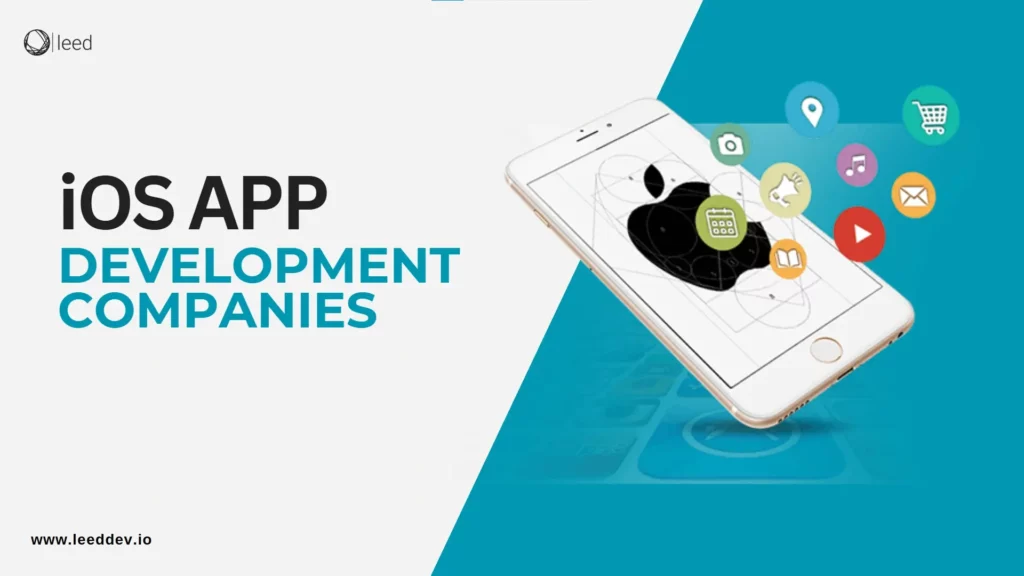Hybrid mobile app development is go-to solution for businesses seeking a balance between functionality and cost-effectiveness. Imagine combining speed and efficiency of web apps with features of native apps. Hybrid apps allow you to write code just once and deploy it across multiple platforms while keeping expenses in check.
With leading brands like Twitter, Instagram and Uber using the power of hybrid solutions it’s clear that this development style is not just a trend it’s a strategic advantage. As mobile app development continues to evolve hybrid apps stand out as a smart choice.
Ready to transform your app idea into reality? Hybrid development might just be the answer you’ve been searching for! Best part? Leed Software Development provides the exceptional Hybrid mobile app development services you are looking for. Schedule a call now!
What is Hybrid Mobile App Development?
So the question is what is hybrid mobile application? A hybrid app involves creating a single app that works on multiple platforms like Android, iOS & Windows using single code. These apps use frameworks like React Native, Flutter or Xamarin to operate across different operating systems
Hybrid apps are essentially web apps allowing access to device features like cameras and notifications. They are cost-effective, quick to develop and easily maintainable. This makes them a popular choice for businesses looking to reduce expenses and speed up development.
Examples of Hybrid Apps
Some of the most popular examples of hybrid apps are given below:
A leading social media platform with over 2 billion monthly users, Instagram’s hybrid structure supports rich media content and allows users to access features even in offline mode.
Uber
A widely used ridesharing app, Uber’s hybrid model offers seamless navigation and a user-friendly interface, making it accessible and convenient for millions globally.
Gmail
Initially built with HTML, Gmail’s transition to HTML5 combines native and web elements, delivering a smooth user experience with advanced features.
X (Formerly Twitter)
X hybrid nature enables it to handle large volumes of traffic daily, proving that hybrid apps can meet the needs of a high-traffic social media platform.
Features of Hybrid Application
A range of features are included in Hybrid mobile app development. Go through the main features which are given below:
✔ Cross-Platform Compatibility: Single codebase allows hybrid apps to run on multiple platforms like Android, iOS and Windows saving time and resources
✔ Faster Development: With reusable code and shared elements hybrid apps are quicker to develop and deploy compared to building separate native apps for each platform
✔ Cost-Effective: Developing one app for all platforms reduces development and maintenance costs making hybrid apps a budget-friendly solution for businesses
✔ Offline Functionality: Hybrid apps can store data locally, enabling users to access certain features and content even without an internet connection
✔ Native-like Experience: Hybrid apps use a native shell, allowing them to access device hardware like cameras, GPS, and push notifications, offering a user experience similar to native apps
✔ Easy Maintenance: Updating a hybrid app is simpler since changes can be made to a single codebase, ensuring consistency across platforms and reducing maintenance effort
✔ Smooth Integration: Hybrid apps can easily integrate with various web services and APIs, allowing smooth connectivity and enhancing app functionality
✔ Scalability: Hybrid mobile app development frameworks make it easy to scale the app as the user base grows, accommodating new features and additional users without needing a complete rebuild
6 Stages Of Hybrid App
- Planning: Evaluate if a hybrid app suits your project needs, determine key features, and select the right tech stack
- Designing the Interface: Create a detailed product architecture, incorporating stakeholders’ input and analyzing business requirements
- Development: Build a secure back end and design a user-friendly interface focusing on performance and reliability
- Testing and Debugging: Test the app’s front and back end to ensure it functions as planned, and fix any bugs
- Deployment: Launch the app across various platforms, making it available for user download
- Maintenance: Regularly update the app, fix issues, and add new features to enhance the user experience and stay competitive
How Do Hybrid Apps Work?
Hybrid apps combine elements of both native & web applications. Here’s a quick breakdown:
- Built with Web Technologies: Developers use HTML, CSS and JavaScript to create app core code
- Wrapped in Native Containers: The code is wrapped in frameworks like Ionic or React Native, allowing the app to run within each platform’s embedded browser
- Access to Device Features: Plugins enable access to hardware features like GPS, camera and contacts
- Cross-Platform: A single codebase works across multiple operating systems, making hybrid apps easier and more cost-effective than native apps
This approach allows apps to be installed from app stores like native apps but developed using web tech, offering a balance of flexibility and efficiency
Most Popular Hybrid App Development Frameworks
Here are the top hybrid mobile app development frameworks and their key features:
- React Native: Based on React and JavaScript, it converts source code into native elements, offering a near-native user experience.
- Flutter: Developed by Google, it supports multiple programming languages and is known for speed, rich widgets, and real-time updates.
- Ionic: A free, open-source framework with a large community, Ionic offers native UI components, debugging, and testing tools, making app development scalable and maintainable.
- Aurelia: An open-source framework with tools like Chrome debugger and VS Code, it’s easy to use with JavaScript or TypeScript and focuses on keeping your code central.
- Native Script: Integrates with JavaScript, Angular, TypeScript, and more, providing access to Android and iOS APIs and allowing use of libraries like Maven and CocoaPods.
Hybrid Mobile App Development vs Native Mobile App Development
| Features | Hybrid Mobile App Development | Native Mobile App Development |
| Codebase | Single codebase for multiple platforms | Separate codebase for each platform (iOS, Android) |
| Development Time | Faster due to reusable code | Slower, requires platform-specific development |
| Cost | Lower, as one app covers multiple platforms | Higher, due to the need for separate apps |
| Performance | Slightly slower, as it adds a web layer | Faster, optimized for each platform |
| User Experience | Near-native but not fully optimized | Best, as it’s tailored for each platform |
| Access | Uses plugins to access hardware (camera, GPS, etc.) | Full access to device features and APIs |
| Maintenance | Easier, with updates applied across platforms | Requires separate updates for each platform |
| Offline Functionality | Supports offline features with local storage | Strong offline capabilities with native APIs |
Pros and Cons of Hybrid App Development
Main benefits of hybrid mobile app development are as follows:
Cost-Effective
Build one app for all platforms, reducing the need for multiple development teams. This approach lowers initial and long-term maintenance costs.
Faster Build Time
Develop with a single codebase, significantly speeding up the development process. This allows faster deployment and updates.
Cross-Platform Compatibility
Write the code once and deploy it across multiple platforms like iOS and Android. This reduces time and effort compared to native apps.
Easy Scalability
Adapt the app for different platforms without extensive modifications. This flexibility makes scaling seamless and efficient.
User Experience
Maintain a uniform design across platforms for a consistent user experience. This helps reinforce your brand identity across devices.
Easy Maintenance
Manage updates from a single back-end, ensuring all platforms are updated simultaneously. This simplifies bug fixes and feature enhancements.
Offline Availability
Hybrid apps can store basic data locally, allowing some functionality without an internet connection. This enhances user accessibility and convenience.
Main disadvantages of hybrid mobile app development are as follows:
User Experience
Customizing the app for different platforms is challenging, leading to inconsistent user experiences across operating systems.
Lower Performance
Hybrid apps often rely on web views, which can result in slower performance compared to native apps.
Limited Feature Availability
Some native features may not be supported in hybrid apps, and new updates may take time to reach all platforms.
Hidden Errors
Hybrid apps may encounter hidden compatibility issues that affect functionality, making them harder to troubleshoot.
Slow Performance
Hybrid apps often have more code and are heavier, which can slow them down compared to native apps.
What is Hybrid App Development Cost?
Cost of hybrid app development depends on the time, functionality, and design complexity:
- Simple Apps: Few features, quicker to develop, costing around $10,000
- Medium-Complex Apps: More features, 2-3 months to build costing between $10,000 and $50,000
- Enterprise Apps: Feature-rich, 3-6 months for development costing $50000 to $150000
- Games: Most complex, costing up to $250000 with some companies charging hourly rates starting at $50 per hour
How to Choose Best Hybrid App Development Company?
Finding the right hybrid app developer involves considering several key factors:
- Expertise
Look for certified developers with strong technical skills in hybrid app development. Their experience ensures a smooth process and high-quality results. - Location
Proximity can matter for communication and collaboration. Decide if you prefer local developers or are open to remote ones. - Cost
Set a budget and get price estimates. Consider whether you’re looking for cost savings or a larger investment for a better ROI. - Post-Launch Services
Ensure the company offers ongoing maintenance and updates after launch, so your app stays current. - Level of Involvement
Determine how involved you want to be in the process. Clarify expectations early on for a smooth working relationship.
Partner With Leed Software for Best Hybrid Mobile App Development Services!
As best hybrid app development company Leed Software Development specializes in building high-performance, cross-platform apps that work seamlessly on iOS, Android and Windows. Our services include customized solutions tailored to your specific business needs ensuring a unique user experience
We also offer rapid prototyping to visualize your app early in the process allowing for quick feedback and adjustments. Our expertise ensures efficient development, reduced costs and a faster time-to-market helping your business reach a wider audience with ease.
We offer:
✔ Exceptional Services
✔ 24/7 Support
✔ Customized Solutions
✔ Reasonable Prices
FAQs
What is hybrid app development?
Hybrid app development involves creating a single app that runs on multiple platforms like iOS, Android, and Windows using a single codebase.
Why choose hybrid apps over native apps?
Hybrid apps are more cost-effective, quicker to develop, and can reach a broader audience since they work across multiple platforms.
What technologies are used for hybrid app development?
Popular frameworks include React Native, Flutter, Xamarin, and Ionic.
Are hybrid apps slower than native apps?
Hybrid apps may have a slight performance lag compared to native apps, but advancements in frameworks have significantly minimized this gap.
How much does hybrid app development cost?
Costs vary based on complexity, ranging from $10,000 for simple apps to $150,000 or more for complex, feature-rich apps.
Can hybrid apps access device features?
Yes, hybrid apps can access device features like GPS, camera, and notifications using plugins and native wrappers.
What are the maintenance requirements for hybrid apps?
Hybrid apps are easier to maintain since they use a single codebase, allowing updates and changes to be applied across all platforms simultaneously.
Can hybrid apps work offline?
Yes, hybrid apps can store data locally, enabling users to access certain features and content even without an internet connection.
Why are we the best choice for hybrid app development?
We combine industry expertise, a skilled development team, and a customer-centric approach to deliver high-quality, tailored hybrid apps. Our commitment to innovation, efficient project management, and post-launch support ensures that your app not only meets your business goals but also provides an exceptional user experience.




